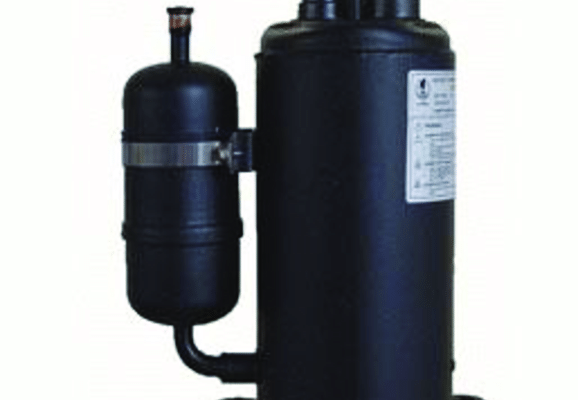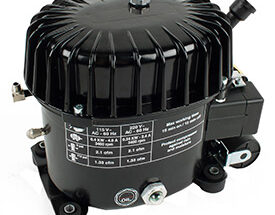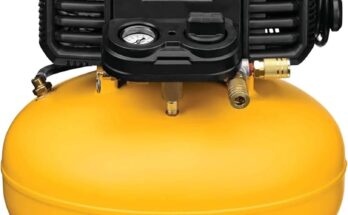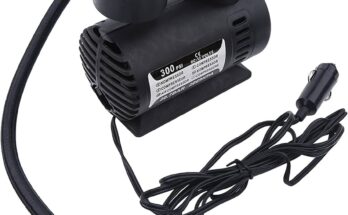When it comes to keeping cool during scorching summers, your air conditioner (AC) compressor plays a crucial role. Contrary to common belief, many homeowners overlook the maintenance of their AC compressor until it malfunctions. In this guide, we’ll delve into the basics of air conditioner compressors, common problems you might encounter, and essential tips to keep your AC system running smoothly all year round.
Understanding Air Conditioner Compressor Basics
Air conditioner compressors are the heart of your cooling system. They work by compressing refrigerant gases, which are then circulated through the AC unit to absorb heat from inside your home and release it outside. There are several types of compressors used in AC systems, each with its own advantages depending on the size and efficiency requirements of your home or office.
Types of Air Conditioner Compressors
The most common types include reciprocating compressors, rotary compressors, and scroll compressors. Reciprocating compressors use pistons to compress the refrigerant, making them ideal for smaller residential units. Rotary compressors, on the other hand, operate with a rotating mechanism, offering quieter operation and higher efficiency. Scroll compressors are known for their reliability and are often found in larger HVAC systems due to their ability to handle higher capacities.
Understanding these different types can help you choose the right compressor for your specific cooling needs, whether you’re looking to replace an existing unit or install a new system altogether.
Common Problems with Air Conditioner Compressors
Despite their importance, air conditioner compressors are prone to various issues over time. Identifying these problems early can prevent costly repairs and ensure your AC system operates efficiently throughout its lifespan.
Common Issues with AC Compressors
- Refrigerant Leaks: A common issue that leads to reduced cooling efficiency and increased energy consumption.
- Electrical Component Failure: Faulty capacitors or relays can prevent the compressor from starting or running efficiently.
- Compressor Overheating: Often caused by restricted airflow or refrigerant issues, leading to system shutdowns.
- Compressor Noise: Grinding, banging, or hissing sounds indicate potential mechanical problems that require attention.
- Faulty Valves or Bearings: Resulting in reduced compressor performance and potential system breakdown.
By understanding these common issues, homeowners can take proactive steps to maintain their AC compressors and avoid sudden breakdowns during peak cooling seasons.
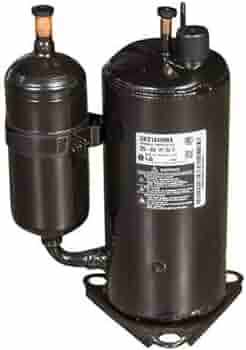
Photo By: m.media-amazon.com
Don’t Let Your AC Compressor Break Down: A Comprehensive Guide
Many homeowners believe that fixing or maintaining an air conditioner (AC) compressor is a job best left to professionals. However, with the right knowledge and guidance, you can tackle some of the common issues yourself and ensure your AC system remains in top shape. In this section, we’ll explore practical solutions for common AC compressor problems and provide essential maintenance tips to extend its lifespan.
Solutions and Fixes
When your AC compressor starts acting up, addressing the problem promptly can prevent further damage and costly repairs. Here are actionable solutions for some of the most common issues:
1. Refrigerant Leaks
Refrigerant leaks not only compromise the cooling efficiency of your AC system but also pose environmental hazards. If you suspect a leak, it’s crucial to locate and repair it promptly. Start by checking for visible signs of oil or refrigerant around the compressor unit. Once identified, consult a professional HVAC technician to safely recharge the system and repair the leak to prevent future issues.
2. Electrical Component Failure
Faulty capacitors or relays can prevent your AC compressor from starting or running efficiently. Before replacing any electrical components, ensure the power to the unit is turned off. Inspect capacitors for bulging or leaking, which are signs of failure. Replace these components following manufacturer guidelines or seek professional assistance if unsure. Regularly inspecting and replacing these parts can extend the life of your compressor and prevent sudden breakdowns.
3. Compressor Overheating
Overheating is often caused by restricted airflow or refrigerant issues within the system. Start by checking and cleaning the condenser coils and ensuring adequate airflow around the compressor unit. Remove any debris or obstructions that may hinder airflow, such as leaves or dirt buildup. Additionally, verify that the refrigerant levels are within manufacturer-recommended limits and consider scheduling regular maintenance checks with a licensed HVAC technician to prevent overheating issues.
4. Compressor Noise
Unusual sounds coming from your AC compressor, such as grinding or hissing noises, can indicate mechanical issues that require attention. Inspect the compressor for loose or damaged parts and tighten or replace them as needed. Lubricate moving components according to manufacturer guidelines to reduce friction and noise. Addressing these mechanical issues promptly can prevent further damage to your compressor and ensure quiet operation of your AC system.
By implementing these solutions, homeowners can effectively troubleshoot and address common AC compressor problems, ensuring their cooling systems operate efficiently throughout the year.
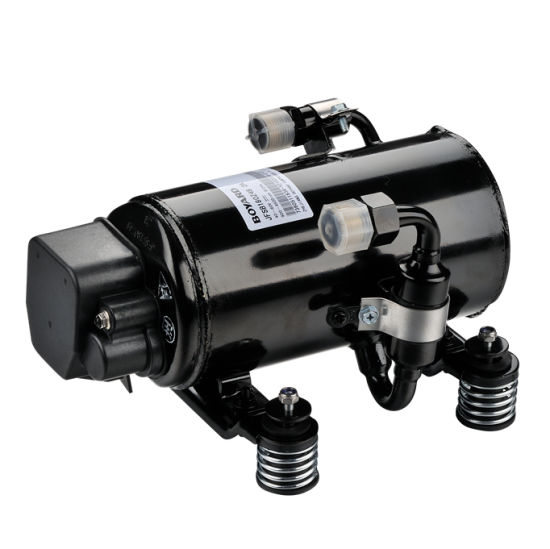
Photo By: image.made-in-china.com
Maintenance Tips to Extend Lifespan
Regular maintenance is key to maximizing the lifespan of your AC compressor and preventing costly repairs. Here are some essential tips to keep your cooling system running smoothly:
1. Clean and Inspect Regularly
Schedule regular inspections of your AC system, focusing on the compressor unit, condenser coils, and air filters. Clean or replace filters as needed to maintain optimal airflow and efficiency. Remove debris from around the outdoor unit and ensure adequate clearance for airflow.
2. Check Refrigerant Levels
Low refrigerant levels can strain your AC compressor and lead to reduced cooling capacity. Monitor refrigerant levels regularly and schedule professional inspections to detect and resolve any leaks promptly. Ensure all repairs and recharges are conducted by licensed HVAC technicians to comply with environmental regulations.
3. Lubricate Moving Parts
Proper lubrication of moving parts within your AC compressor reduces friction and extends component life. Refer to your system’s maintenance manual for recommended lubricants and lubrication intervals. Apply lubricant sparingly and avoid over-oiling, which can attract dust and debris.
4. Maintain Electrical Components
Inspect electrical connections and components, such as capacitors and relays, for signs of wear or corrosion. Tighten loose connections and replace damaged components promptly to prevent electrical failures that can affect compressor operation.
5. Professional Maintenance Checks
Schedule annual maintenance checks with a qualified HVAC technician to inspect and service your AC system comprehensively. Professional maintenance helps identify potential issues early and ensures your system operates efficiently, saving you money on energy bills and costly repairs over time.
By implementing these maintenance practices and addressing common issues promptly, homeowners can extend the life of their AC compressors and enjoy reliable cooling comfort throughout every season.
FAQs About Air Conditioner Compressors
Q: How often should I clean my air conditioner compressor? A: It’s a good idea to clean your air conditioner compressor at least once a year, ideally before the start of the cooling season. Regular cleaning helps maintain optimal airflow and prevents debris buildup that can hinder performance.
Q: What are signs that my air conditioner compressor needs repair? A: Watch out for signs like reduced cooling efficiency, unusual noises (such as grinding or hissing), or ice buildup on the evaporator coils. These can indicate issues like refrigerant leaks, electrical component failure, or mechanical problems that require attention.
Q: Can I repair my air conditioner compressor myself? A: Some minor issues, like cleaning debris from around the unit or replacing air filters, can be done by homeowners. However, more complex repairs involving electrical components or refrigerant handling should be left to licensed HVAC professionals to ensure safety and compliance with regulations.
Q: How can I prevent my air conditioner compressor from overheating? A: Regularly clean and inspect the condenser coils for dirt and debris that can restrict airflow. Ensure adequate clearance around the outdoor unit and monitor refrigerant levels to prevent overheating and ensure efficient operation.
Q: What should I do if my air conditioner compressor is making loud noises? A: Loud noises from your compressor, such as banging or hissing sounds, often indicate mechanical issues. Inspect the unit for loose or damaged components and lubricate moving parts according to manufacturer guidelines. If the noise persists, consult a professional HVAC technician for further diagnosis and repair.
Q: How can I extend the lifespan of my air conditioner compressor? A: Regular maintenance is key to extending the lifespan of your AC compressor. Clean or replace air filters regularly, monitor refrigerant levels, and schedule annual maintenance checks with a qualified technician to ensure optimal performance and efficiency.
Q: What are the benefits of professional maintenance for my air conditioner compressor? A: Professional maintenance helps identify potential issues early, ensuring your AC system operates efficiently and reducing the risk of costly repairs. Technicians can perform thorough inspections, clean coils, check refrigerant levels, and optimize system controls for reliable cooling comfort.
Q: Is it normal for my air conditioner compressor to cycle on and off frequently? A: While some cycling is normal, frequent or constant cycling could indicate issues like low refrigerant levels, dirty coils, or a faulty thermostat. Consult a professional technician to diagnose and address the underlying cause for optimal system performance.
